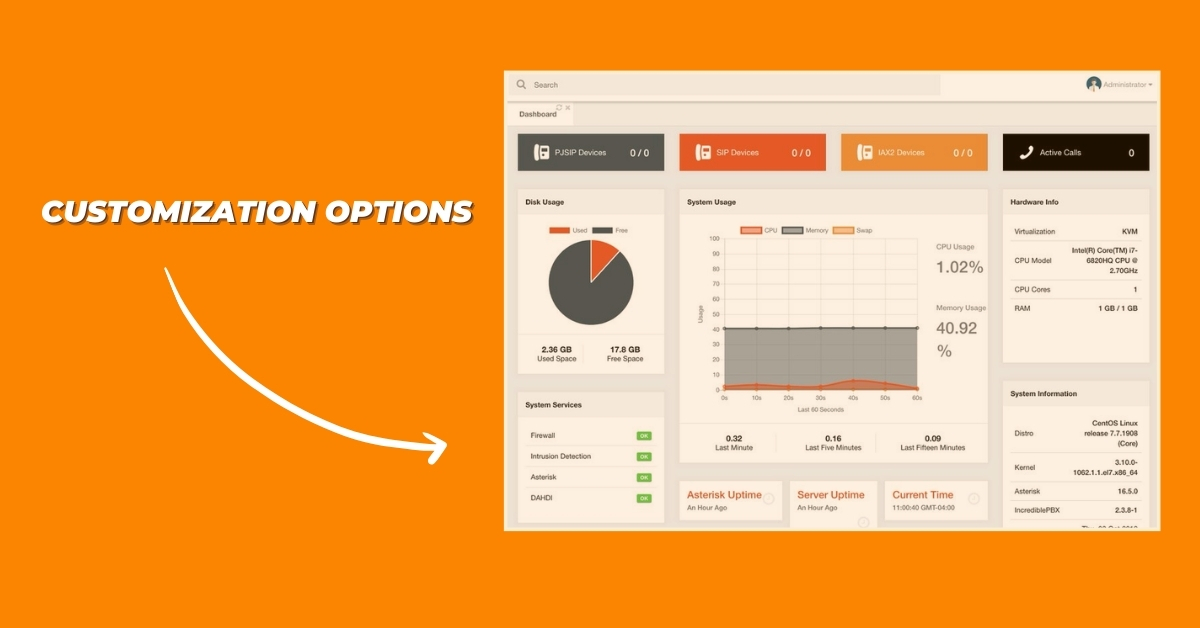In today’s corporate world, things are changing fast, especially when it comes to how we communicate. The old-fashioned phone system just doesn’t cut it anymore for modern companies. That’s where the virtual PBX system steps in—a game-changing solution that brings flexibility, scalability, and a bunch of helpful features to the table, ready to boost any business into the efficiency spotlight.
Picking the right virtual PBX for your company isn’t just about swapping old gear for new tech. It’s about finding something that fits seamlessly with how you work now and sets you up for growth in the future.
In this blog post, we’ll break down the basics of a virtual PBX system so you can make an informed decision. It’s not just about keeping up with the competition; it’s about raising the bar. So, let’s jump into the world of virtual PBX systems and figure out how to choose the best one for you.
Understanding Business Needs

When you’re looking to upgrade how your company communicates, it’s all about understanding what your business really needs. Getting a virtual phone system isn’t just about keeping up with the latest tech—it’s about finding a solution that fits your company like a glove.
The right cloud-based PBX should make your team work better together, make talking to customers smoother, and boost productivity, no matter where your team is. The system you choose should match the size and type of your business, giving you the business communication tools you need to handle your day-to-day stuff.
Features to Look for
Now, let’s talk features. Picking the right cloud-based PBX might seem overwhelming, but focusing on a few key things can help. You want something that fits smoothly into how you already work, stays up and running reliably, and can grow along with your business.
Look for features like advanced call routing, voicemail-to-email, and an interactive voice response (IVR) that guide callers swiftly and easily. With everyone on the go these days, having a mobile app to tap into the system is a must.
And don’t forget analytics—features that give you info on call patterns and volumes so you can make smart decisions based on data. The goal here is to get a virtual phone system that not only handles what you need right now but also sets you up for whatever comes your way in the future.
Cost Considerations

When you’re thinking about telephony solutions for your business, money matters a lot. You want something that does the job well without breaking the bank.
When checking out VoIP services, it’s not just about the starting cost. You’ve also got to think long-term—how much will you save on upkeep and updates? Cloud-based systems can be cheaper in the long run, but make sure you know about extra fees for features like call forwarding or text messaging, and remember to pick a service with clear prices that can grow with your business.
Your phone system should fit what you need and also make financial sense for your business’s future.
User-Friendly Interface
In a fast-paced workplace, the communication software has to be easy to use for everyone. You want a system that doesn’t require a whole manual and a ton of training to figure out.
You want an intuitive dashboard that handles voice calls, text messages, and other functionalities without being a puzzle to manage. A straightforward system means your team can focus on core business tasks, not wrestling with complicated software. After all, the quicker your team can adapt to the new system, the smoother your business operations will run.
Basically, it’s not just about having fancy features; it’s about making them easy for everyone in your company to use.
Security Measures

When it comes to PBX for small businesses, security is the top priority. With the rise of unified communication systems, protecting sensitive data has never been more crucial.
Modern telecommunications technology needs to be tough against threats, and that’s where the latest security measures come into play. From making TLSv1.3 the go-to for secure connections to supporting EAP-MSCHAPv2 for authentication, businesses can rest easy knowing their remote collaboration tools are locked down.
But here’s the deal—security isn’t a one-time thing; it’s an ongoing commitment. It’s about making sure every call, message, and video chat isn’t just about working together but also a solid defence against breaches.
For small businesses, this level of security has to be part of the system, easy to handle, yet savvy enough to keep the cyber-walls strong.
Vendor Reputation
When you’re picking who to get your communication tech from, the reputation of the company matters a lot. Your remote collaboration tools and PBX aren’t just products; they’re partnerships.
Look for a company that’s known for being reliable and innovative, with a knack for killer customer support. Their reputation should be built on the bedrock of customer satisfaction and technological excellence.
In the end, a vendor’s good name means your business is in good hands, making sure your communication setup is in trusted territory.
Customization Options

When it comes to hosted PBX services, there’s no one-size-fits-all solution. That’s why customization is key. Cloud communication platforms offer the flexibility to tailor services to the unique needs of your virtual office solutions.
Need to tweak voicemail-to-email settings or set up different call-routing paths for different times of the day? No problem. The real beauty lies in the ability to modify features as your enterprise phone systems evolve.
Take AWS, for instance—they let you modify Lambda functions, showing off this adaptability in action. Customization is not just a feature—it’s the freedom to mould technology to fit your business perfectly.
Compatibility with Existing Systems
Now, jumping into new technology is exciting, but not if it means tossing out what you already have. That’s where compatibility comes in. Whether you’re integrating with existing enterprise phone systems or boosting your setup with cloud communication platforms, the transition should be smooth.
Hosted PBX services excel in this area, often offering plug-and-play compatibility. It’s all about respecting the time and money you’ve put into your current technology. VoIPElements emphasizes the importance of a unified recording platform that plays well with others.
The goal here is to have new virtual office solutions that work together seamlessly to enhance your setup. After all, good tech should play nice with the team.
Reliability and Uptime

When it comes to digital telephony and office phone systems, reliability is everything. A glitch in communication can mean missing out on important opportunities.
Cloud-based telephony and IP PBX solutions promise not just reliability but also robust uptime. It’s about knowing that when you pick up the phone, the dial tone is there, and your connection is solid. This is the foundation for scalable business communications, ensuring your telephony system can grow as your company does.
Trial Periods and Demos
When it comes to choosing the right virtual PBX system, you shouldn’t have to make a blind decision. Which is why trial periods and demos are crucial.
A reliable provider of office phone systems will give you the chance to test things out. It’s about getting hands-on experience with the features making sure they match your business needs.
Whether you’re trying out call routing options or exploring voicemail integrations, having a trial period or demo allows you to see the system in action. It’s like test-driving a car before committing—making sure it’s the right fit for your business.
Industry-Specific Considerations

Different industries have different needs when it comes to virtual PBX systems. Collaboration software for businesses varies based on the sector, and your online communication tools need to align with these industry-specific needs.
Take healthcare, for example—they need secure messaging that follows rules like HIPAA. On the other hand, a creative agency might care more about video calls and sharing files.
Picking a virtual PBX system that understands these industry details correctly is a big plus. It’s not just about meeting your communication needs; it’s about optimizing your operations. So, when you’re shopping around, keep an eye out for providers that get this, ones that show they know what’s up in your specific industry.
Bottom Line
Selecting the best virtual PBX system for your business requires a thoughtful approach that includes various critical factors. You have to ensure it works well with your specific industry, check its reliability and customization options, and make sure it doesn’t have a habit of going offline.
As you work through all these considerations, take a look at VoIPElements. They’re a top-notch provider that specializes in virtual PBX systems. They’re all about collaboration software and online communication tools, tailoring their solutions to fit different business needs.
Your choice of a virtual PBX system can really shake up how well your business communicates and grows. VoIPElements is there to back you up, making sure the integration is smooth and efficient for your company.


